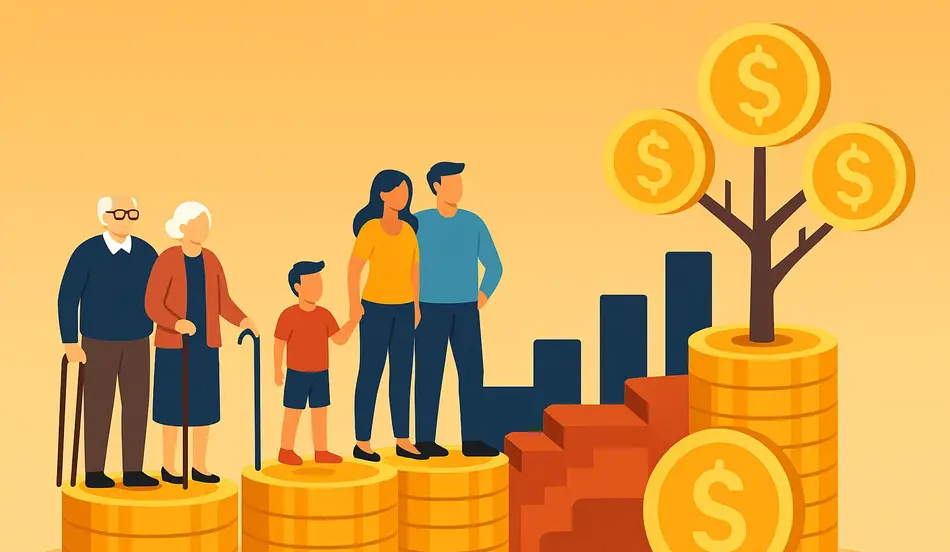Introduction: The Life-Changing Career Advice That Works
In the fast-paced world of professional development, career advice for professionals often comes in complex packages with elaborate strategies. But sometimes, the most impactful guidance is surprisingly simple. The best career advice many successful professionals have ever received boils down to one powerful principle: if it takes less than 2 minutes, do it right now.
This deceptively simple rule has transformed careers, reduced stress, and opened doors that seemed permanently closed. It’s not just about productivity—it’s about breaking through the mental barriers that hold professionals back from their full potential.
The 2-Minute Rule: Why Small Actions Create Big Results
Understanding the Psychology Behind Procrastination
The 2-minute rule addresses one of the biggest career killers: procrastination. When professionals spend 20 minutes worrying about sending an email that would take 30 seconds to write, they’re not just wasting time—they’re creating unnecessary stress and missed opportunities.
Key Benefits of the 2-Minute Rule:
- Eliminates decision fatigue
- Reduces mental clutter
- Builds momentum for larger tasks
- Creates a reputation for reliability
- Opens doors to new opportunities
Real-World Applications in Professional Settings
This principle applies across all professional scenarios:
Email Management:
- Quick responses to colleagues
- Following up on leads immediately
- Acknowledging important messages
Networking Opportunities:
- Sending thank-you notes after meetings
- Connecting with new contacts on LinkedIn
- Sharing relevant articles with your network
Career Development:
- Updating your resume with new achievements
- Scheduling informational interviews
- Applying for opportunities that catch your eye
Breaking Free from Self-Limiting Beliefs
The Danger of Pigeonholing Your Abilities
One of the most valuable pieces of career advice for professionals is to avoid pigeonholing yourself and your abilities. Many professionals get stuck in their comfort zones, believing they can only succeed in one specific role or industry.
Why Sideways Transitions Matter:
- They often lead to unexpected opportunities
- They build diverse skill sets
- They create unique career paths
- They increase marketability
- They prevent career stagnation
Embracing the Zigzag Career Path
Modern careers rarely follow straight lines. The most successful professionals understand that sideways transitions can be just as exciting and rewarding as vertical promotions.
Examples of Successful Sideways Moves:
- Marketing professional moving to product management
- Teacher transitioning to corporate training
- Sales executive becoming a business analyst
- Engineer moving into project management
The Power of Immediate Action in Career Growth
Why 30 Seconds Can Change Everything
When you encounter a task that will take 30 seconds, doing it immediately creates a cascade of positive effects:
Immediate Benefits:
- Reduces your mental load
- Prevents tasks from accumulating
- Creates positive momentum
- Builds trust with colleagues
- Opens unexpected opportunities
Long-term Career Impact:
- Develops a reputation for reliability
- Creates more time for strategic thinking
- Reduces stress and anxiety
- Builds confidence in decision-making
- Positions you for leadership roles
Building the Habit of Quick Decisions
The 2-minute rule isn’t just about individual tasks—it’s about building a mindset of decisive action that serves you throughout your career.
Developing This Habit:
- Start with the smallest tasks
- Track your progress
- Celebrate small wins
- Notice the ripple effects
- Share the principle with your team
Overcoming Common Objections to the 2-Minute Rule
“But What If I Make a Mistake?”
Many professionals hesitate to act quickly, fearing they’ll make errors. However, the cost of inaction often far exceeds the cost of small mistakes.
Risk Management Strategies:
- Use templates for common responses
- Have a trusted colleague review important communications
- Build in quick review processes
- Learn from any mistakes quickly
“I Need Time to Think About This”
While some decisions require careful consideration, many professional tasks benefit from immediate action. The key is distinguishing between tasks that need deliberation and those that need execution.
When to Act vs. When to Think:
- Act immediately: routine communications, simple requests, acknowledgments
- Take time to think: major decisions, complex problems, strategic planning
The Ripple Effect: How Small Actions Create Big Opportunities
Building Your Professional Reputation
Every quick response, every immediate follow-up, and every small action contributes to your professional reputation. Over time, these small actions compound into significant career advantages.
Reputation Benefits:
- Known as someone who gets things done
- Trusted with important projects
- First choice for new opportunities
- Referral for promotions and roles
- Respected by colleagues and leaders
Creating Unexpected Career Paths
The 2-minute rule often leads to opportunities you never planned for. A quick response to a colleague’s request might lead to a new project. An immediate follow-up after a meeting might open doors to new networks.
Real Examples:
- A quick email response led to a speaking opportunity
- Immediate LinkedIn connection resulted in a job offer
- Fast thank-you note created a mentorship relationship
- Quick article share established thought leadership
Implementing the 2-Minute Rule in Your Daily Routine
Morning Routine Optimization
Start your day by handling quick tasks immediately:
First 30 Minutes:
- Respond to urgent emails
- Acknowledge important messages
- Update your calendar
- Send quick follow-ups from yesterday
Throughout the Day
Keep the 2-minute rule top of mind:
When You Encounter a Task:
- Ask: “Will this take less than 2 minutes?”
- If yes, do it immediately
- If no, schedule it appropriately
- Track your progress
End-of-Day Review
Reflect on how the 2-minute rule served you:
Review Questions:
- How many 2-minute tasks did I complete?
- What opportunities did I create?
- How did this reduce my stress?
- What can I improve tomorrow?
The Long-Term Impact on Career Success
Building Sustainable Success Habits
The 2-minute rule isn’t a quick fix—it’s a fundamental shift in how you approach your professional life. Over time, this habit creates sustainable success patterns.
Long-term Benefits:
- Increased productivity without burnout
- Better work-life balance
- More time for strategic thinking
- Stronger professional relationships
- Greater career satisfaction
Creating a Legacy of Action
Professionals who master the 2-minute rule don’t just succeed individually—they create cultures of action and efficiency in their organizations.
Leadership Impact:
- Modeling effective behavior for teams
- Creating more productive work environments
- Mentoring others in efficient practices
- Building organizations that value action
Frequently Asked Questions
Q: How does the 2-minute rule help with career advancement?
A: The 2-minute rule helps with career advancement by building a reputation for reliability and efficiency. When you consistently complete small tasks immediately, you’re seen as someone who gets things done, making you a prime candidate for promotions and new opportunities.
Q: What if I’m overwhelmed with 2-minute tasks?
A: If you’re overwhelmed with 2-minute tasks, prioritize them based on impact and urgency. Focus on tasks that will create the most value or prevent the biggest problems. Remember, the goal is to reduce stress, not create more.
Q: How can I apply this career advice for professionals in a team setting?
A: You can apply this career advice for professionals in a team setting by modeling the behavior and encouraging others to adopt the 2-minute rule. Share the principle in team meetings, create templates for common quick tasks, and celebrate when team members act decisively.
Q: What’s the difference between acting quickly and acting rashly?
A: Acting quickly means making informed decisions based on available information and taking immediate action on tasks you’re confident about. Acting rashly means making decisions without proper consideration. The 2-minute rule is about the former—using your judgment to identify tasks that benefit from immediate action.






